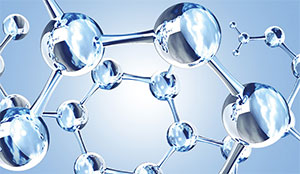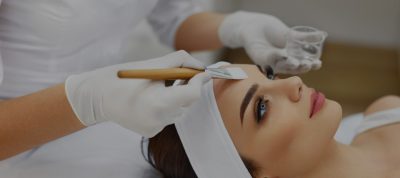 As we age, skin moisture can drop significantly, which makes the skin lose elasticity and expose the signs of aging on the skin. Hyaluronic acid (HA) plays a critical role in skin health with its unique ability to hold in moisture. Hyaluronic acid is a natural glycosaminoglycan (polysaccharides that are an important component of connective tissue) and is distributed widely throughout connective, neural, and epithelial tissue. Hyaluronic acid is a major component of skin, where it benefits tissue repair and protection. It is of the chief components of the extracellular matrix (the tissue that provides structural support to cells). It is able to penetrate the skin’s upper layers to improve and benefit the skin when applied topically. In short, hyaluronic acid supports many important areas of the body, with notable benefit to joints and skin.
As we age, skin moisture can drop significantly, which makes the skin lose elasticity and expose the signs of aging on the skin. Hyaluronic acid (HA) plays a critical role in skin health with its unique ability to hold in moisture. Hyaluronic acid is a natural glycosaminoglycan (polysaccharides that are an important component of connective tissue) and is distributed widely throughout connective, neural, and epithelial tissue. Hyaluronic acid is a major component of skin, where it benefits tissue repair and protection. It is of the chief components of the extracellular matrix (the tissue that provides structural support to cells). It is able to penetrate the skin’s upper layers to improve and benefit the skin when applied topically. In short, hyaluronic acid supports many important areas of the body, with notable benefit to joints and skin.
Hyaluronic acid can be derived from multiple resources, foods, supplements, and HA powders. When applied in an HA cream or serum, hyaluronic acid forms an air permeable layer and penetrates into the dermis, thus boosting the elasticity and hydration of the skin. The protective barrier on the skin locks in moisture, which helps give the skin a youthful appearance. Moreover, hyaluronic acid further benefits the skin by helping protect against UVB rays (and the scavenging reactive oxygen species they generate). Among other effects, UVB can cause sunspots.
Look for these key properties in the various hyaluronic acid serums and creams. Prefer hyaluronic acid from a vegan source. More often than not, a “pure hyaluronic acid” serum will contain alcohol or preservatives that counteract the benefits of hyaluronic acid used as a topical. Avoid these products. Also avoid hyaluronic acid serums that also contain parabens, sulfates, or other ingredients that are harmful to the skin.
Student resources











